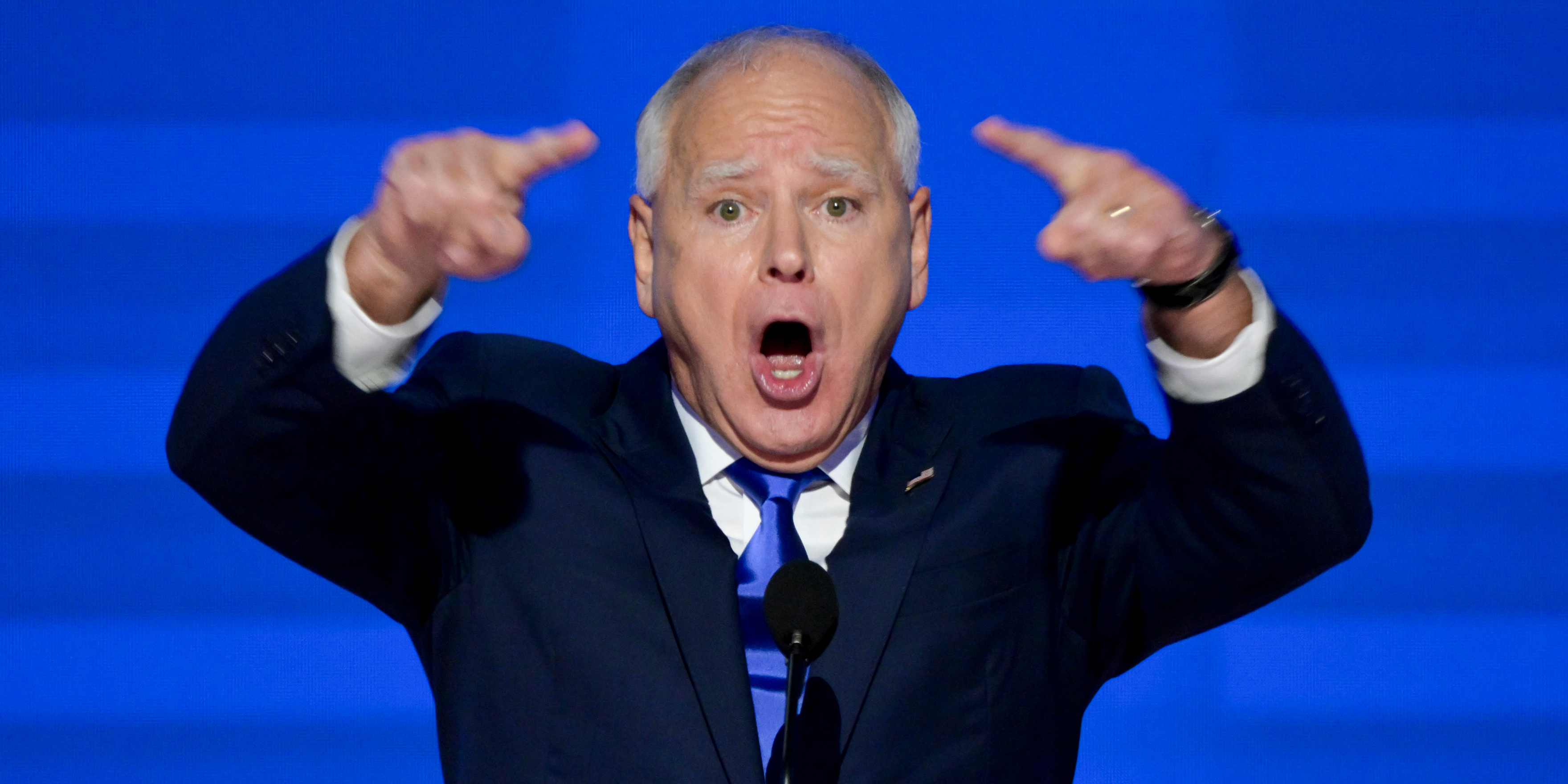‘I know guns. I’m a veteran. I’m a hunter. And I was a better shot than most Republicans in Congress, and I’ve got the trophies to prove it,” Walz said in Chicago. “But I am also a dad. I believe in the Second Amendment, but I also believe our first responsibility is to keep our kids safe.”
This may come as news to some on the Left, but there are progressives in the US who actually hunt while also supporting sensible gun control policies. Hunting is not a “culture war” issue on the scale of abortion, school prayer and the rights of women, the LBGT community and racial minorities.
On the other side, most animal welfare or rights activists would very much identify with the political Left and progressive causes.
Yet they can also support conservation initiatives in Africa that place the welfare of charismatic wildlife such as elephants over that of poor rural Africans – a state of affairs that frankly reeks of racism. And they can display a classist condescension toward rural North Americans who hunt for sport or for commercial reasons to earn a living such as Newfoundland sealers.
Read more: How a botched elephant translocation in Malawi unleashed a landscape of fear and loathing
Read more: Loaded for Bear: A new movement is needed to address human-wildlife conflict that puts poor people first
In short, it’s complicated.
Wyoming and culture war misconceptions
Conservative Republicans, it must be said, are guilty of perpetuating the perception of a stark culture war divide on these issues.
Late in 2023, I attended a conference organised by South Africa’s Custodians of Professional Hunting and Conservation in the Free State.
One delegate from Wyoming spoke at the conference about how hunting was a big part of the culture in that state, and noted that it was very rural, conservative and Republican – and that many of its residents owned many guns.
That is a fairly accurate portrayal of Wyoming – this correspondent has spent time there in pursuit of trout – but the implication was that it is conservative Republicans who are defending the territory of hunters. Like the animal welfare movement, this is in some ways an appeal to emotion, and politics in America these days is pretty emotive terrain.
But this is highly misleading.
US hunters and anglers do lean right, but it is a plurality, not a majority. A national poll conducted in 2017 found that 42% of US hunters and anglers surveyed identified as Republican, 32% as independents, and 18% as Democrats. Fifty percent identified as conservative.
Think about it: the No 2 on the Democratic ticket is a hunter and he has not tried to hide his spoor on this front. And politically, this is unlikely to be damaging with the party’s base while holding out the prospect of attracting independents and Republicans repelled by the odious Donald Trump, who probably couldn’t find the trigger on a firearm with his little fingers.
On the Republican side, it would be inconceivable to imagine the candidate for vice-president being, say, an activist for People for the Ethical Treatment of Animals (Peta).
That would be politically damaging to the Republican ticket and highlights how insular the party – now effectively a cult under the sway of a transparent con man – has become.
By contrast, the Democrats are a far broader and more inclusive tent – one that includes hunters and anglers.
Having said that, it is of more than passing interest to note that one person who was in the running to be the VP candidate on the Republican ticket, South Dakota governor Kristi Noem, shot down her prospects when she revealed in her autobiography that she had shot dead one of her hunting dogs after it capped a poor performance in the field by killing several chickens belonging to a local family.
“I hated that dog,” Noem wrote – words that would seal her political fate and make her a barn-sized target for late-night talk shows and comedians.
Revulsion at shooting your own dog for bad behaviour does not make a person a Peta activist. But it is also a bridge too far for many Republicans.
And there are bridges between the parties that are being trod by hunters and anglers.
The same survey on US hunters and anglers cited above also found that “47% believe that gun rights are important, but conservation is just as important”, while 59% agreed that global warming is occurring.
Global warming is among the conservation issues where hunters and those who do not hunt, or are opposed to it, can find common ground. Hunters and anglers are very aware of climate change because of the time they spend outdoors observing the natural world.
Hunting is a polarising issue, but it is not as polarising as it is often portrayed to be. Cliches about “hunters” versus “conservationists” or conservative Republicans being the custodians of hunting are threadbare, fail to capture the complexities at play, and are simply untrue.
Of course, this is not just an American political issue and extends to the often sterile debates around trophy hunting in Africa, which usually ignore the views of Africans as the agenda is driven by animal welfare activists from the West.
Tim Walz, as the running mate of Kamala Harris, highlights the poverty of the discourse around many of these issues. Hunters and non-hunters alike need to lock and load and take aim together at urgent conservation issues such as climate change. And they are doing so under the sprawling canvas that is the US Democratic Party. DM





